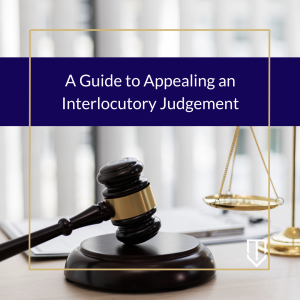 Does the appeal of an interlocutory judgment automatically stay the partition case?
Does the appeal of an interlocutory judgment automatically stay the partition case?
No. An appeal of an interlocutory judgment in a partition case is not stayed unless the appellant files an undertaking. (CCP §§ 917.4, 917.5.) Normally, appeals of court judgments result in an “automatic” stay that restrains the lower trial court from issuing any more orders until the appeal process is completed.
There, are however, certain types of orders where this rule is inapplicable. Instead, if the appealing party wants to stay lower court proceedings, they must post a bond to the court called an “undertaking.” Interlocutory judgments of partition fall into this category because they are orders that dispose of real property.
 California Partition Law Blog
California Partition Law Blog


 Can a Tenant in Common Force a Sale?
Can a Tenant in Common Force a Sale?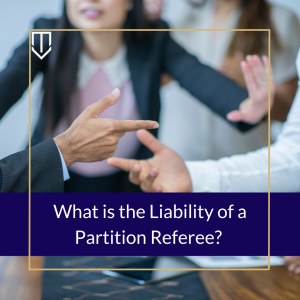 Generally, when a trial court orders an interlocutory judgment directing a partition by sale, it can appoint a referee to conduct the sale (CCP § 873.010). However, when a
Generally, when a trial court orders an interlocutory judgment directing a partition by sale, it can appoint a referee to conduct the sale (CCP § 873.010). However, when a 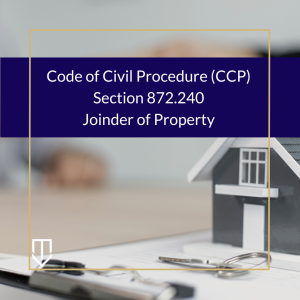 The California Partition Law begins at
The California Partition Law begins at 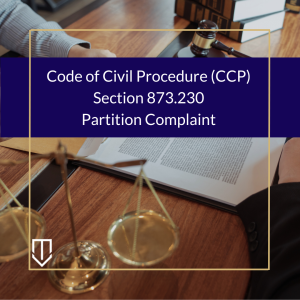 The California Partition Law begins at Code of Civil Procedure section 872.010 and ends at Code of Civil Procedure section 874.323. Section 872.230 outlines the necessary information a plaintiff must have in their complaint. The point of the statute is for plaintiffs to file a proper complaint with all of the content required to initiate a partition lawsuit. If the party files an improper complaint, the court could dismiss the case at the outset.
The California Partition Law begins at Code of Civil Procedure section 872.010 and ends at Code of Civil Procedure section 874.323. Section 872.230 outlines the necessary information a plaintiff must have in their complaint. The point of the statute is for plaintiffs to file a proper complaint with all of the content required to initiate a partition lawsuit. If the party files an improper complaint, the court could dismiss the case at the outset.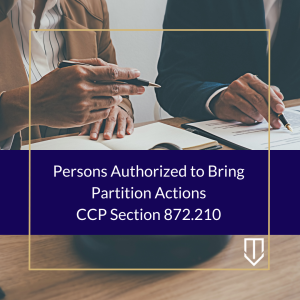
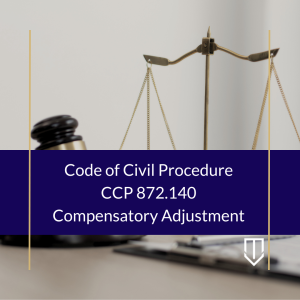 The
The  Generally, married couples who buy homes in California are afforded certain rights and protections under California law. These rights and protections do not necessarily apply to unmarried couples who own property as tenants-in-common. Unmarried couples can still take further steps to protect their property rights.
Generally, married couples who buy homes in California are afforded certain rights and protections under California law. These rights and protections do not necessarily apply to unmarried couples who own property as tenants-in-common. Unmarried couples can still take further steps to protect their property rights.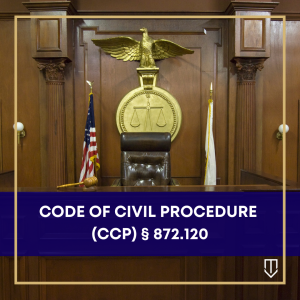 California Code of Civil Procedure section 872.130 expands the court’s authority in an effort to make the court system more efficient when ordering a
California Code of Civil Procedure section 872.130 expands the court’s authority in an effort to make the court system more efficient when ordering a 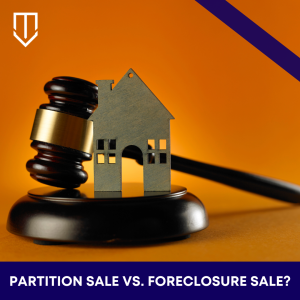 Partitions sales and foreclosure sales are two different ways that a property can be sold. The main difference between the two is the purpose behind the two sales. For partition sales, the purpose is to divide the property and for the owners to get the proceeds in proportion to their ownership. The purpose of foreclosure sales is to pay off a borrower’s loan.
Partitions sales and foreclosure sales are two different ways that a property can be sold. The main difference between the two is the purpose behind the two sales. For partition sales, the purpose is to divide the property and for the owners to get the proceeds in proportion to their ownership. The purpose of foreclosure sales is to pay off a borrower’s loan.